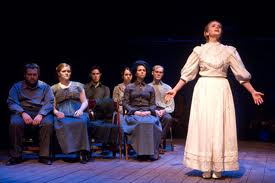Just for a Moment
One of the lessons we learn as we grow older is to cherish life every day, and not to pin our hopes on a future that never comes.
We all believe in the myth of future bliss. Americans especially swear by this one—that with a lot of hard work and sacrifice we’ll one day achieve happiness. If today is stressful and demeaning with no chance for a well-rounded life with meaningful relationships and friendships—not to worry, we’re told. It’s a small price to pay for what you’re going to get years from now.
Then as we grow older we realize that the closing date on future bliss keeps getting postponed. It was supposed to get here by age 45, but now it looks like you’ll have to wait another ten years. So you wait…. Then you get to 55 and you find out that it’s not really here yet. And that’s when you start thinking, “Maybe it’s never coming.”
I don’t know why it is, but usually it’s some kind of loss, some kind of trauma that shakes us into love, into the present. I always think of that scene in Thornton Wilder’s “Our Town.” Young Emily Webb has died in childbirth, so they carry her up the hill to the cemetery in Grover’s Corner. And in Wilder’s iconic staging, the dead sit on these folding chairs, they observe the world, and they talk among themselves.
Emily sees the world going on, and she wants to relive her life—knowing what she knows now! But the Stage Manager—he’s sort of the Greek Chorus and the homey, wise philosopher—says, “That sounds good, but it always turns out wrong.” And the other dead say, “You don’t want to do that….” But Emily says, “I’ll pick a good day, a happy day to go back.” And so she goes back for a day—her 12th birthday.
She goes down the hill into little Grover’s Corners, and to her home. She walks into the kitchen and there’s her mother getting ready for the day. Emily is standing behind her mother, and she says, “Mama, it’s me, Emily.” Without turning around, her mother says, “Oh, Emily—you’d better get ready for school….” Emily says, “Mama, I’m 14 years dead…you’re a grandmother. Let’s talk for a minute.” But the mother responds with things like, “Yes, looks like it’s going to be a cool one today! Better take a coat . . . .”
Emily is desperate to connect with her mother. She looks to the Stage Manager for permission to go around in front of her mother. The Stage Manager nods, and she goes around and stands in front of her mother, face to face. Then comes that famous monologue.
Emily: Oh, Mama, look at me one minute as though you really saw me…. Just for a moment now we’re all together. Mama, just for a moment we’re happy. Let’s really look at one another!… It goes so fast. We don’t have time to look at one another. I didn’t realize. So all that was going on and we never noticed. [The mother goes about her tasks, she’s not really hearing anything….]Take me back—up the hill—to my grave. But first: Wait! One more look. Good-bye, Good-bye world. Good-bye, Grover’s Corners…Mama and Papa. Good-bye to clocks ticking…and Mama’s sunflowers. And food and coffee. And new ironed dresses and hot baths…and sleeping and waking up. Oh, earth, you are too wonderful for anybody to realize you. Do any human beings ever realize life while they live it—every, every minute?
Stage Manager: No. The saints and poets, maybe they do some.
* * * *
Today, some of us perhaps can be poets and the rest of us maybe can be saints. Just for this one moment. And all the people on those folding chairs will be so proud of us.

Love this!
David, To me every day is a treasure and to count my blessings. Must be something about age!
You’re right, Clark–it’s often true that a few years help us to see this life as a precious gift.